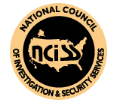When it comes to child custody cases, the court’s ultimate goal is to prioritize the best interests of the child. As such, any relevant factors that can impact a child’s health and wellbeing will be taken seriously in custody proceedings. One of the most significant factors that can determine the outcome of a custody case is parental drug and alcohol abuse. Here, we will explore the actions How Drug and Alcohol Abuse Impacts Child Custody Cases.
1. Require mandatory drug and alcohol testing.
When there is suspicion of drug or alcohol abuse, a judge might require both parents to submit to mandatory drug and alcohol testing. This testing can occur randomly or on a regular schedule. The judge may also require the parent with a history of abuse to undergo more frequent or in-depth testing to ensure sobriety.
2. Limit or require supervision for parental visitation.
A judge can also order supervised visitation or even limit visitation altogether. In some cases, the court might grant visitation rights to the non-abusing parent only. This is to ensure that the parent with the history of abuse is not under the influence when visiting or caring for the child.
3. Award custody to the sober parent.
In severe cases of drug or alcohol abuse, a judge may award full custody to the sober parent. This is to protect the child’s safety and ensure that they are being cared for by a responsible caretaker.
4. Bar a parent from transporting or driving a child.
If a parent with a history of alcohol abuse has multiple drunk driving arrests, a judge may prohibit them from transporting or driving the child. This is to guarantee the child’s safety and reduce any potential risks.
5. Consider the severity of the drug found on drug tests.
Judges might evaluate the types of drugs found in mandatory drug tests and consider the severity of the substance abuse. For example, marijuana may be viewed as less concerning than cocaine or heroin. The severity of the drug can impact the restrictions placed on parental visitation or custody rights.
6. Look at a parent’s history and past patterns of behavior.
Judges will review a parent’s history of drug and alcohol use and evaluate past patterns of behavior. This can include past arrests, convictions and treatment programs. The goal is to determine the likelihood of future abuse and make decisions in the best interest of the child.
7. Deny a parent visitation or custody rights due to drug or alcohol addiction or abuse.
In certain circumstances, if a judge feels that a parent’s drug or alcohol abuse poses an immediate threat to the child’s safety, they might deny visitation or custody rights altogether.
As a parent, you want to do everything possible to protect your child from the dangers associated with substance abuse. If the other parent has a history of drug or alcohol addiction, it’s important to speak with a professional who can help you build a strong case in court. By hiring a private investigator like Bulldog PI, you can gather the necessary evidence to ensure that your child’s wellbeing is prioritized in the custody case. Remember, the court’s ultimate goal is to prioritize the child’s best interests, and this includes safeguarding them against the risks associated with drug and alcohol abuse.










